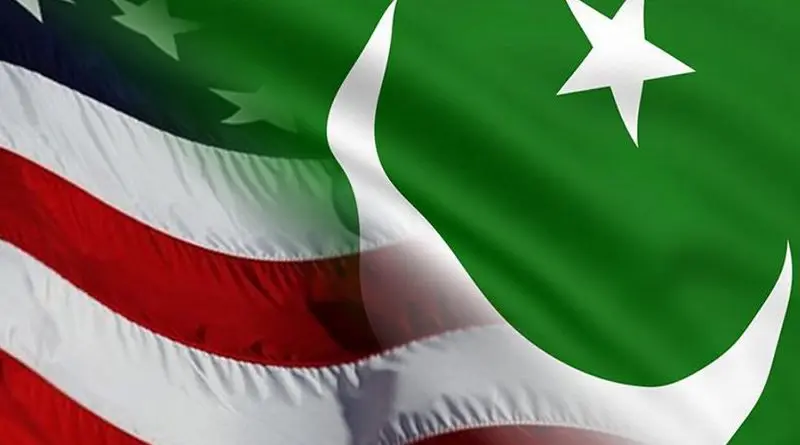Future Of Pak-US Relations: Realist Prospective – OpEd
Chankaya Kutaliya, one of the greatest political philosophers of the subcontinent, famously stated once that “There is some self-interest behind every friendship. There is no friendship without self-interests. This is a bitter truth.” These words by Chankaya are basic tools when we try to analyze the relationship between states. International relations always remained a realm of anarchy and self-interest. By anarchy, we mean that there is no international body that governs the relationship between states, and self-interest means that they always try to maximize their interest. Simply it is the Hobbesian state of nature in which everyone is at war against everyone. Peace is that little period in which both countries cooperate because they have a common interest to achieve or common enemy to defeat.
This realist tradition always remained a dominant factor in the United States’ foreign policy. But especially in its relation to Pakistan, it had the most influence. Often Pakistan and the United States are termed as close allies and both countries cooperated the most during the Soviet invasion of Afghanistan and the United States’ war against terror. Let’s first have a brief look at the two events.
When the Soviet Union invaded Afghanistan in 1979 Pakistan was under the sanctions imposed by the United States due to its nuclear program. Although Pakistan pleaded many times that it is facing an existential threat from India and India had already detonated a nuclear device in 1974. Nonetheless the United States was persistent in its policy to Punish Pakistan. The situation changed dramatically after the Soviet invasion of Afghanistan. Regardless of the US rhetoric of supporting democracy worldwide it supported a military dictator in Pakistan and provided Millions of dollars of economic as well as military aid. Most importantly the US ignored Pakistan’s nuclear program. The United States and Pakistan with the help of many other states jointly ventured to train and arm Mujahidin to fight against Soviet forces. But when Soviet left Afghanistan it abruptly changed the US attitude towards Pakistan. Again Pakistan’s nuclear program came to limelight and sanction were imposed on Pakistan under the Pressler amendment. Though this amendment was made in 1985, but Pakistan did not face any consequence until it was supporting the United States in Afghanistan. The story does not end here but the US also accused Pakistan of sponsoring terrorism without because these are the same people recruited jointly by CIA and Pakistan and it left this region without any rehabilitation program for the people who were given arms training by the US and it western allies. Pakistan had no option but to deal with these people because it could not fight against them alone. On May 11, 1998, when India conducted its nuclear test. In response, Pakistan also to tested its first nuclear device on 28, 1998 to keep the balance of power in the region. Sanction on Pakistan was further strengthened. Nonetheless, after the tragic incident of 9/11 situation again changed dramatically. Pakistan again labeled as a major non-NATO ally and a front line state in the United States’ war against terrorism provided with military and economic aid. During the Salala incident and at some other points situation worsened a little but overall there was closer cooperation in the fight against terrorism.
Now when the Afghan peace deal is signed and the US is again about to leave this area what will be the future of Pak-US relations? Pakistan had invested a lot of hopes in President Trump that he will make some efforts to solve the Kashmir dispute between Pakistan and India. Pakistan is also very much dependent on the US supplies not only economically but also militarily. If we see this historical account situation does not look very much in the fever of Pakistan. Because the US does not need Pakistan anymore in Afghanistan and is strengthening its relation with Indian to counter Chinese influence in South Asia. I don’t say that the US will adopt a policy hostile to Pakistan. But the former US national security advisor and an important man in the realm of world politics was when asked about sanctioning Pakistan on its nuclear program, (Though it was on nascent stage in early 1970 and India, its arch-rival already got the nuclear capability and there were nothing concrete from the United States to stop proliferation from Indian side ) he said: “Gentlemen, there is something indecent about our always proving that we are strong by kicking our allies in the teeth”. Not sure about the other allies but in case Pakistan this statement had validity. Therefore Pakistan must make its foreign policy realistically considering the ground facts without prejudicing it with the past close bilateral cooperation of the first two decades of the twenty-first century. Because about world politics Mearsheimer was right that “it has always been a ruthless and dangerous business, and it is likely to remain that way”.
*Tajjalla Munir is a research scholar of MS International Relations at COMSATS University Islamabad.

